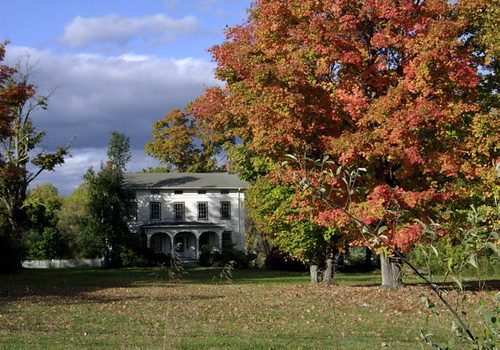What I Learned From the Recent Power Outage – Part 1
by A.K., Survival Blog:

As I related in a previous article, I’ve been a “nomad” for the past couple of years since selling my home and taking off to travel, volunteer etc. This has resulted in my living in a whole lot of places, some in the US and some overseas. I’ve spent time camping in the US and time living in an urban apartment overseas in an area subject to earthquakes/tsunamis, terrorist attacks, and missiles. Add to that just ordinary homes of all kinds, from suburban sorts to urban apartments in the US. Much of this has involved pet-sitting so I might reside in these places anywhere from a few days to a month or more. So what’s a prepper to do?
My ability to “prep” in a normal fashion and to a level that I’d prefer hasn’t been possible the past few years due to living in other people’s homes and being so mobile. When I’ve had the use of my car (here in the US) I’ve been able to take more stuff with me but still, it’s a small hatchback so it’s limited. I’m pretty much dependent to a large degree on what other people have in their homes to weather disasters. It ain’t a pretty picture I can tell you after having lived in well over 50 places the past few years. Still, I tried to do my best given the limited circumstances.
Even overseas in an all-electric apartment I stored some water, food, had flashlights, a small rocket camping stove etc. That wasn’t a great situation, especially in terms of water as at least half the year there is no rain and there are no natural water sources in the area that aren’t salt water. At least heat wasn’t needed to survive; I never used any while living there, even in the winter. There were frequent power outages there but usually no longer than 4 or 5 hours; evidently there were a lot of bad drivers who would regularly crash into traffic light poles which necessitated shutting down power to the area to do the repairs.
But now that I’m back in the US, house hunting and continuing to stay in different homes while pet-sitting. It’s been eye-opening to consider the sort of “preps” that people in these homes have done in terms of any sort of preparedness for an emergency. This is interesting (I think) as it points out to me both the issues to be found while traveling if one is a committed prepper plus where the preparedness gaps are for others. As well, what do I learn from this that I can do better in my own home when I find it? And what should/can I improve in my own preps while traveling?
For starters, I noticed zero water storage. All of these homes (except one) had domestic water supplies, whether public or drilled well, that were dependent on grid electricity. I own a mini-Sawyer water filter but don’t always remember to take it with me along with a water bottle or two; zero points for me! There’s really no excuse given how small it is to not have it with me at all times; need to go find it in my storage shed. Or maybe I should just buy another one that travels with me? [JWR Adds: Unless you live in the tropics, water filters should always be stored indoors–not in an unheated outbuilding or in your parked vehicles. If they freeze, they can develop internal fractures that allow unfiltered water to pass through!]
Heating is a big concern here in the far north. I only found wood stoves in the north country and not down in say North Carolina; there they were totally dependent on grid power for heat. Until my present house sit, which I’ll get to in a minute, none of the homes, even rural Northern ones, had wood stoves capable of heating the whole house or keeping pipes from freezing if the power were off for a while in the winter.
COOKING
What about cooking? A few had gas stoves but most were electric. Again, I own both a small propane single-burner propane cookstove as well as a small camping rocket stove but both are now stored in my storage unit(and the propane at a friend’s house). I really should at least take the rocket stove with me; it will burn quite well with just handfuls of kindling. As for the homeowners, not being able to even heat up water to make a hot drink let alone cooking during a power outage wouldn’t be a lot of fun. And since I’m staying in these homes, I really should prepare better for this.
What about sewage? That really varied from house to house. Some were tied into city sewer systems and would work for a while until they didn’t. Others were on septic systems and would function well during a power failure. Thankfully none were pumped mound systems.
FOOD STORAGE
How about food? When I’m housesitting, the bulk of the food supply belongs to the homeowner and under normal circumstances I wouldn’t consider touching it. I bring my own food along with me and purchase more as needed. Again, I’m pretty limited as to what I can reasonably haul around with me. Not gonna realistically haul 5 gallon buckets of wheat and rice everywhere I go. As well, it’s below freezing now(and earlier was very hot and sunny) so that puts a limit on how much I can haul with me in my car that I could leave in there as canned/bottled products won’t do well in either an overheated car nor in freezing temps and the rapid temperature changes would be harmful to stored food.
I try to bring things with me that are easy to prepare and pack some calories; peanut butter and jam, bread, Nutella, pasta, rice, canned beans, tuna, oatmeal packets, sugar and coffee etc. I purchase fruit and veggies as well as dairy products as needed. Again, this is far below what I’d want to have around in an emergency situation but given that I’m sort of hauling my house with me like a turtle, I do the best I can. If I used the freeze-dried #10 cans of food that are sold that would probably be a great idea; I don’t but for others they would probably be a good way to have access to lightweight very portable food.
So what did I see in terms of food storage? Everyone at least had some food put away. No one, so far as I could tell, had actual serious quantities such as 5 gallon pails of oats or beans etc. Of course I refrained from any real snooping so there could have been stuff squirreled away that I didn’t see and barring a disaster wouldn’t have gone looking for; I’m really cognizant of this being someone else’s home and try to be respectful. But at least these people had more than just soy sauce packets and two beers in the fridge! In an emergency they(or I) would have had enough to eat for a while(at least several weeks). Some did better with this than others. Some also had fully stocked(stuffed full) freezers that after several days without power would have been a disaster. I’m not sure any of these people had a way to pressure can the contents of the freezer and those who had all-electric kitchens couldn’t have done any canning anyway.
OTHER SUPPLIES
What else? Some were definitely fans of Costco and stocked up on paper goods, detergent, cleaning supplies etc. Some had a decent amount of hand tools, useful hardware etc. I refrain from looking in people’s personal space, bedroom so I really don’t know if they had other useful things such as first aid supplies, etc. I pretty much kept my assessment to the obviously visible apparent stuff in places/spaces that were permitted to me. Several had useful books such as guides to mushrooms, plants etc on their shelves. All pluses.
What about communications? In a grid failure none would have had internet. A few had a land line as well as their cell but in all cases they had cordless phones which wouldn’t work if the power was out; no old-fashioned corded phones to be found. I’m not sure why one wouldn’t have at least one traditional corded phone around if a land line was in operation; they’re cheap new and can be found at thrift stores for about $1 each here.
Loading...



